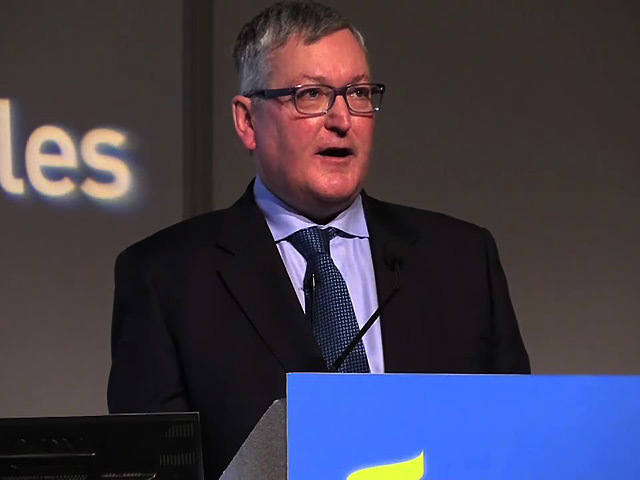
Holyrood’s Energy Minister has written to Amber Rudd seeking reassurance that energy security issues are being “properly considered”.
The Scottish Government said Fergus Ewing’s letter to the UK Energy Secretary follows a market notification earlier this week from National Grid of a “shortfall” in reserve capacity.
Mr Ewing has raised concerns over electricity capacity margins and urged the UK Government to change policy direction to “ensure faster build of new power capacity”.
He said: “National Grid issuing an urgent request for more electricity shows it is becoming even harder pressed to keep the lights on this winter and highlights the complacency of the UK Government’s energy policy.
“The Scottish Government have warned the UK Government – repeatedly and at the highest levels – of the consequences of declining capacity margins, both face to face and in letters from the First Minister to the Prime Minister. These warnings have been ignored and advice rebuffed, despite mounting evidence of a problem.
“The fact that National Grid were forced to pay £2,500 per megawatt hour earlier this week compared with the typical price at that time of about £60 shows how worrying this situation has become. Ultimately it is the bill payer that has to pay for those huge spikes in electricity costs so if the situation is repeated there is a real danger of increasing energy bills for consumers.”
But Ms Rudd said keeping the lights on is “non-negotiable”.
“National Grid has the right tools in place to manage the system this winter and we will ensure that they continue to do so in future,” she said.
“Our number one priority is to ensure that hard-working families and businesses have access to secure, affordable energy supplies they can rely on.
“In the longer term we are investing in infrastructure and low-carbon energy supplies, such as nuclear and shale gas, to improve energy security for future generations.”
Last month, National Grid moved to counter fears of blackouts this winter by insisting that electricity margins are “manageable” when it published its winter outlook.
Mr Ewing added: “The situation of narrowing GB capacity margins will only be exacerbated when Longannet (power station in Fife) closes prematurely next year due to unfair transmission charges. Longannet could have played an important role for several years to come as we continue our transition towards cleaner forms of generation.
“Scotland is an energy rich country and is the ideal base for the development of a range of technologies which could alleviate the situation, including wind energy, carbon capture and storage and pumped storage hydro. But this will require movement on policy from the UK Government to encourage increasing energy system flexibility, security, and sustainability.”
WWF Scotland director Lang Banks said: “It should be remembered that the action taken by the National Grid last week was mainly as a result of multiple plant failures primarily at Britain’s fleet of ageing and polluting coal-fired power stations.
“North and south of the border, this whole situation underlines the need for politicians to support greater deployment of renewable energy projects, the building of new hydro pumped storage schemes, and initiatives to reduce overall energy demand.”
